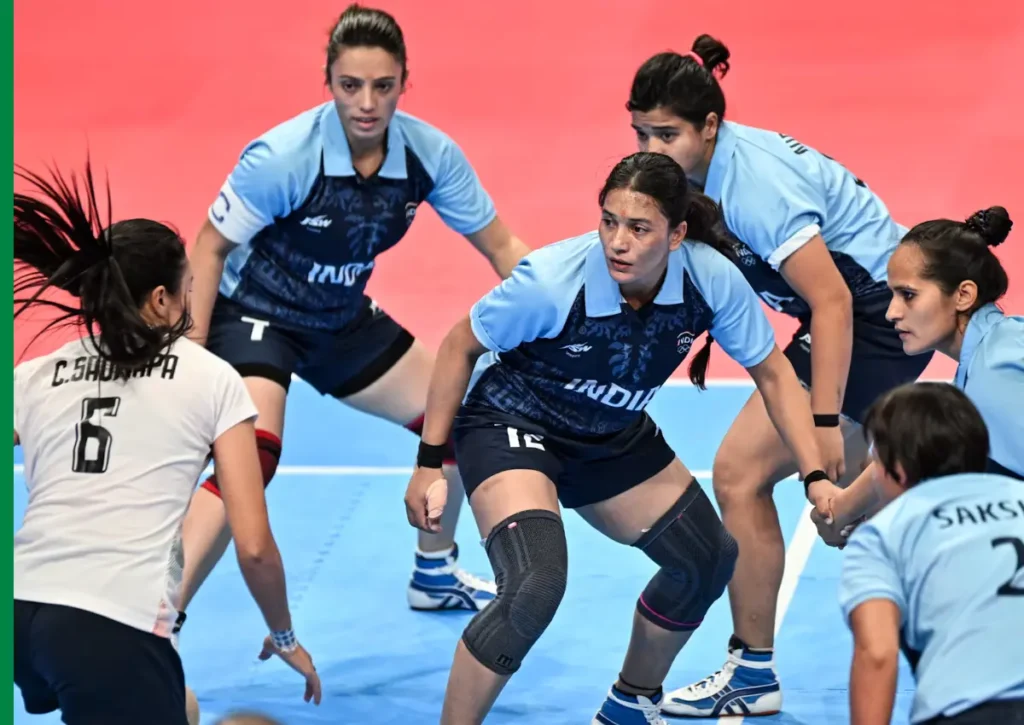In a surprising turn of events, the much-awaited Women’s Kabaddi World Cup 2025, which was scheduled to begin on August 3 in Hyderabad, has been postponed indefinitely. The decision, announced late Monday evening, has left participating nations in a state of uncertainty, especially Bangladesh, which had just revealed its final 15-member squad hours before the announcement.
The tournament was expected to mark a significant milestone in women’s kabaddi, as it would have been the second edition of the World Cup after a long hiatus since the inaugural event in 2012. According to officials from the Bangladesh Kabaddi Federation, they were informed of the postponement by their Indian counterparts only moments after their national squad announcement.

Abrupt Notification and Disappointment Among Teams
Bangladesh, which had conducted months of rigorous training and preparation, had named Ruplai Akter as the team captain and was scheduled to travel to India on August 1. Just one hour after the official press briefing, the federation received a letter from the host nation stating that the tournament would no longer proceed as planned.
The reason cited in the communication was the “limited time available for organising the tournament,” and the decision was made “in the best interest of the sport.” A revised schedule is expected to be announced later, although no specific timeline has been shared.
“We were shocked. Everything was set, tickets were arranged, and the players were mentally prepared. This kind of last-minute decision is extremely demotivating for our athletes,” said a senior official from the Bangladesh Kabaddi Federation, requesting anonymity.
Months of Preparation Come to a Halt
The national women’s kabaddi team of Bangladesh had been training intensively for months at the Riya Gope Women’s Sports Complex in Dhaka. The training camp was supervised by head coach Shahnaz Parvin Maleka and assistant coach Arduzzaman Munshi.
Bangladesh also made history earlier this year by playing its first international women’s kabaddi series against Nepal, a move that significantly boosted the players’ confidence and visibility. The World Cup was expected to serve as a continuation of that momentum and an opportunity to test their skills against top-tier global opponents.
“Our team has grown immensely over the past year. This World Cup was our chance to shine on an international stage,” said Maleka.
Impact on Global Women’s Kabaddi
The indefinite postponement has sparked questions about the long-term planning and coordination of international kabaddi events, especially those involving women. The inaugural Women’s Kabaddi World Cup was held in Patna, India, in 2012. Since then, no further editions have been held, making the 2025 tournament a crucial step for the sport’s development.
Players and sports analysts believe that such abrupt cancellations damage the credibility of the event and discourage emerging nations from investing in women’s kabaddi programs.
“Events like the World Cup are not just about winning. They are about representation, growth, and building confidence. When you pull the plug without notice, you send the wrong message,” said a kabaddi analyst based in South Asia.
What’s Next for Participating Nations
Several countries, including Bangladesh, Iran, Sri Lanka, Kenya, and hosts India, were expected to participate in the event. Teams had begun travel preparations and some had already secured visas and accommodations. With the sudden postponement, national federations now face logistical setbacks and financial losses.
Despite the international setback, the Bangladesh Kabaddi Federation has decided to go ahead with its domestic national championships. Scheduled to begin on July 29, these competitions will provide players with a platform to maintain form and focus.
“Though the World Cup is not happening right now, we want to ensure our athletes don’t lose their rhythm. The national championships will continue as planned,” said the federation’s general secretary.
Host Country Yet to Clarify Future Dates
The Amateur Kabaddi Federation of India (AKFI), the organiser of the 2025 Women’s World Cup, has yet to release an official public statement detailing the next steps. Sources indicate that venue readiness, administrative delays, and scheduling conflicts may have contributed to the sudden decision.
Local sports administrators in Hyderabad have declined to comment, though it’s understood that preparations for hosting the teams had not reached the final stages. Whether India will retain hosting rights for the rescheduled tournament remains unclear.
Concerns Over Organisational Readiness
The indefinite postponement of a major global event raises concerns over the sport’s international structure. Unlike cricket or football, kabaddi still lacks a fully centralised global governing body with clear event protocols. As a result, events often rely heavily on local federations, which may not always have the resources or time to execute major international tournaments successfully.
“Until kabaddi establishes a more robust international framework, such disruptions will continue to plague the sport,” said a former kabaddi player turned administrator.
Looking Ahead: A Moment for Reflection and Reform
While the current setback is disappointing, it also presents an opportunity for introspection. Stakeholders must now focus on creating better communication channels, realistic timelines, and transparent planning to prevent such abrupt disruptions in the future.
Players and fans alike are hoping for a quick resolution and rescheduling of the World Cup. For many women athletes, this tournament is more than just a sporting event—it’s a platform for visibility, progress, and dreams.
Until then, national federations are expected to recalibrate their plans and keep their athletes engaged through domestic and regional competitions. As the global kabaddi community waits for fresh dates, the call for better governance in the sport grows louder.









